Will Indonesia’s Whoosh extension to Surabaya be derailed by Chinese debt?
With the current US$7.3 billion rail line not projected to break even for 40 years, analysts are urging caution on an extension
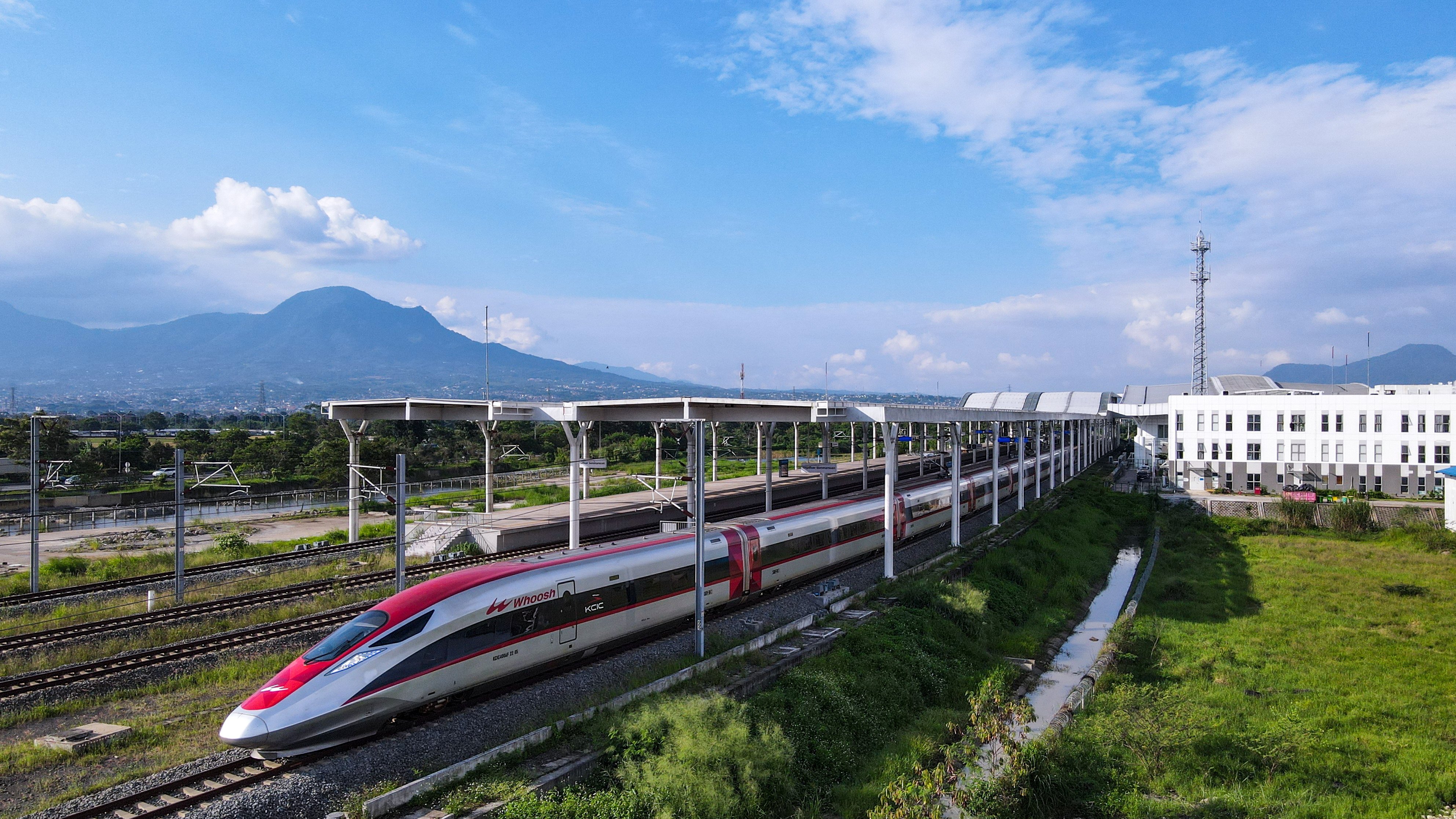
Indonesia is reviving plans to extend its Chinese-backed high-speed rail network, with ambitions to connect Jakarta with Surabaya, the nation’s second-largest city. But analysts say familiar complications could stall the project, from regulatory hurdles to the mounting debt owed to China.
The proposed extension would build on Whoosh – Southeast Asia’s first high speed rail line – a US$7.3 billion project connecting capital Jakarta to Bandung in West Java province. The 142km (88-mile) railway, which was largely funded by China, was beset with delays and cost overruns before its inauguration by former president Joko Widodo in October 2023.
Talk of extending the bullet train eastward to Surabaya has circulated since before Whoosh began operations, largely championed by Luhut Binsar Pandjaitan, Widodo’s long-time fixer and the coordinating minister for maritime affairs and investment during his administration.
Now serving as chairman of the National Economic Council, a government advisory body, Luhut reaffirmed during a trip to Beijing on May 20-22 that the rail extension remained on the agenda – though he conceded that Indonesian bureaucracy had stalled progress.
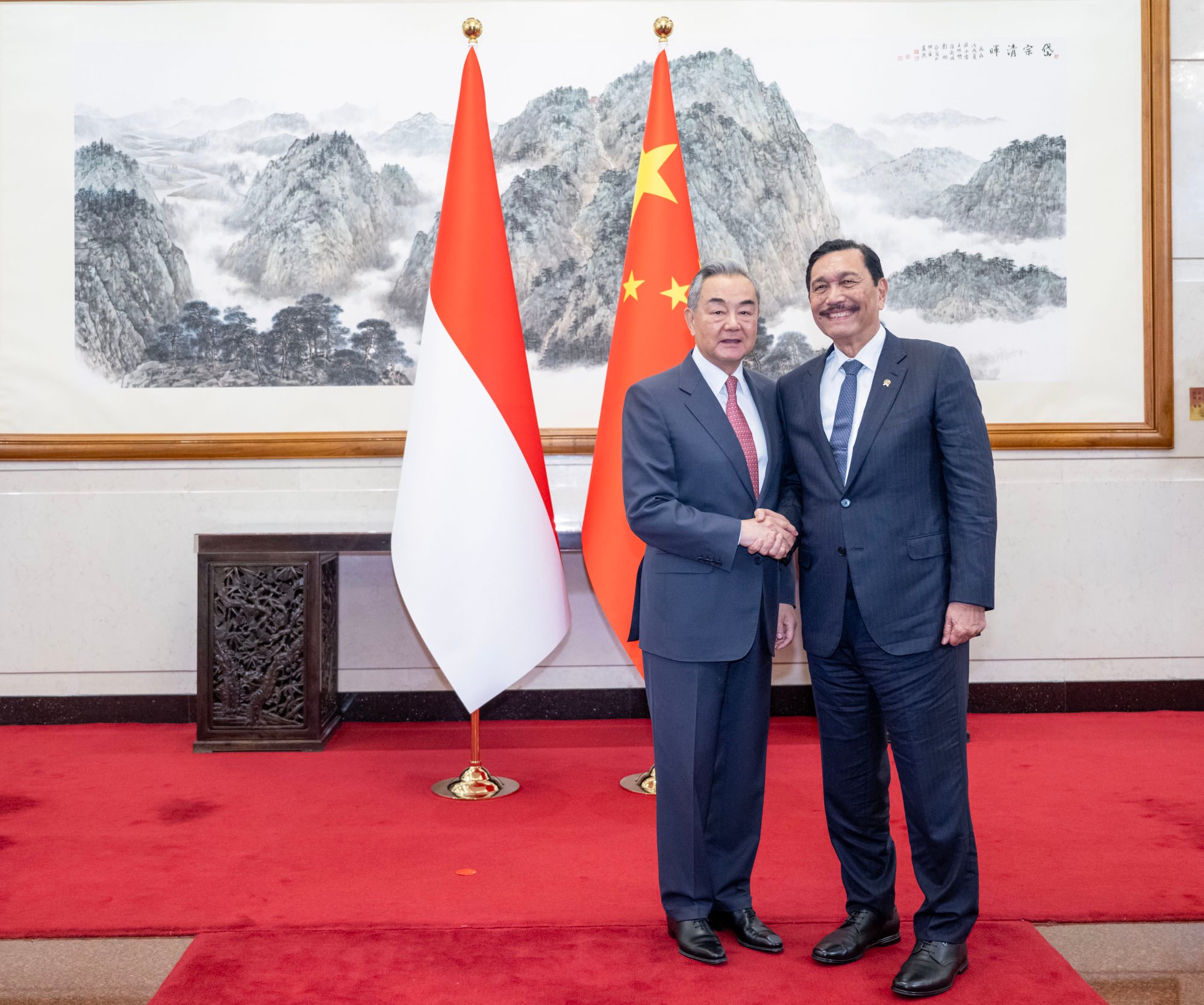
“The issue is actually on our side because we haven’t finished drafting the regulation yet. It’s that simple. But once it’s done, we’ll start talking about a joint study [with China],” Luhut told Indonesia’s state-owned Antara news agency.
“The presidential regulation must be issued immediately because China is waiting, if it is OK then the joint study [can be carried out].”
His remarks followed a meeting with Chinese Foreign Minister Wang Yi. Luhut’s Beijing visit came just days before Chinese Premier Li Qiang’s trip to Jakarta – as part of his first overseas trip this year – where he met President Prabowo Subianto. Both sides said they explored deepening trade and investment ties amid current global economic headwinds.
China is Indonesia’s biggest trade partner, with annual bilateral trade exceeding US$130 billion, as Prabowo noted during the meeting. For Beijing, strengthening ties with Southeast Asia’s largest economy has become increasingly important as it navigates an ongoing trade war with the United States.
Expanding the high-speed rail to Surabaya would be emblematic of deepening ties, analysts say, and reinforce China’s flagship belt and road infrastructure campaign aimed at enhancing regional connectivity.
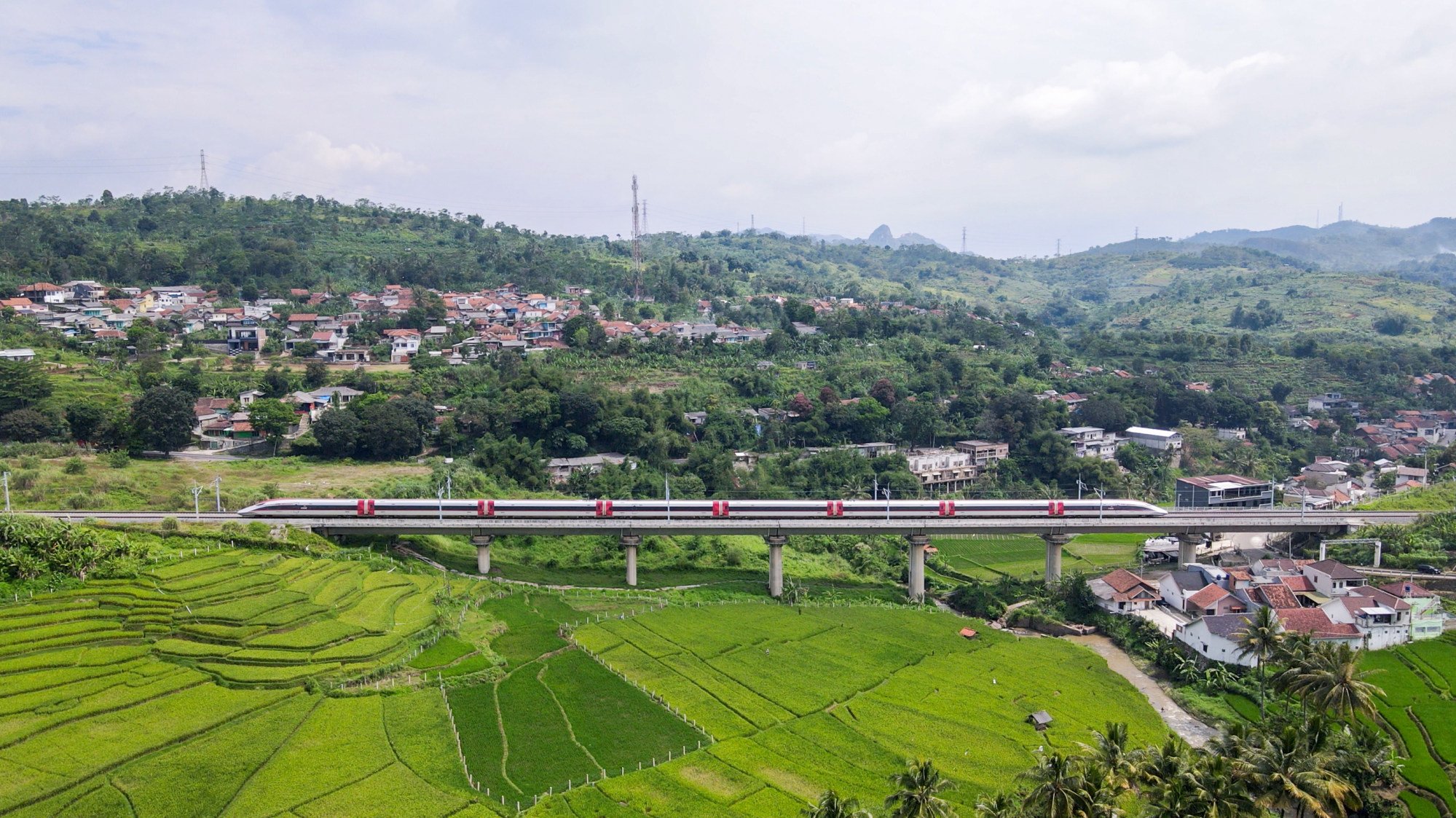
But any move forward would require Indonesia to address the challenges it encountered with Whoosh, in particular the risk of prolonged debt obligations to China amid uncertain economic conditions.
“In my view, the project is not feasible at the moment, given the tight fiscal conditions faced by the government,” said Siwage Dharma Negara, a senior fellow and co-coordinator of the Indonesia studies programme at Singapore’s ISEAS – Yusof Ishak Institute.
Lessons should have been learned from the earlier Jakarta-Bandung rail project, said Dedi Dinarto, a senior associate and lead Indonesia analyst at strategic advisory firm Global Counsel.
“This time, Indonesia must carefully assess the total project cost, including land acquisition, construction risks, and potential cost overruns, which severely affected the Jakarta–Bandung project,” he said.
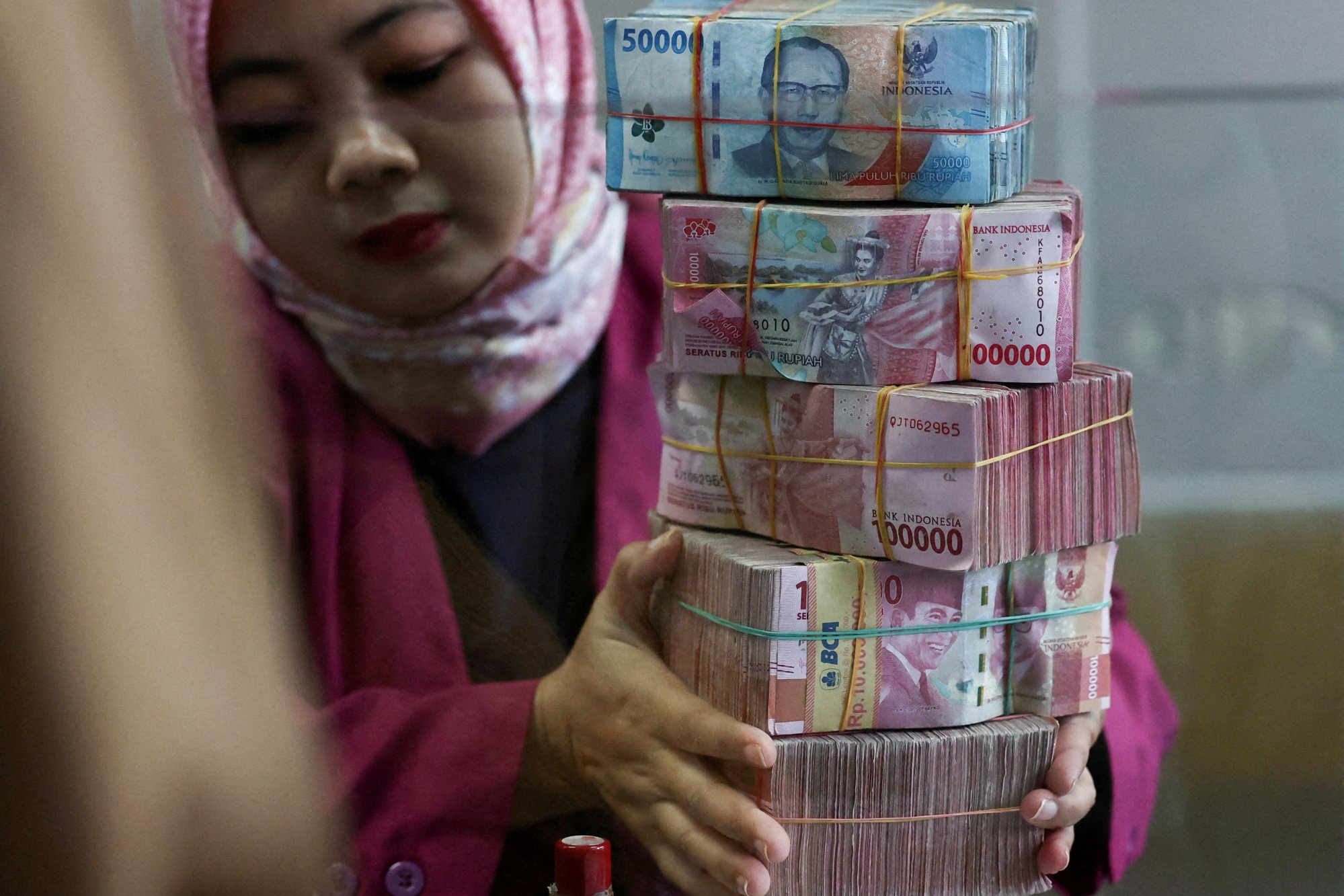
Financial burdens
Construction on Whoosh began in 2016, with operations initially slated to launch in 2019. However, the project was delayed by land-acquisition disputes, environmental concerns and the Covid-19 pandemic.
Originally budgeted at 66.7 trillion rupiah (US$4 billion), total costs ballooned to 113 trillion rupiah. The China Development Bank covered 75 per cent of the cost, with the remainder funded by Indonesia’s state budget – despite earlier assurances that public funds would not be used, according to Muhammad Zulfikar Rakhmat from the Centre of Economic and Law Studies in Jakarta.
The Chinese loan has a 40-year term with a 10-year grace period, but additional borrowing may be required to manage rising debt. Zulfikar said documents released by Indonesia’s state-owned railways company showed that the project posted a deficit of 3.15 trillion rupiah (US$193 million) in its first year of operation.
The railway’s internal rate of return was 8.56 per cent – below the minimum acceptable threshold of 10 per cent, he said, citing a recent study into its operations. The project is not forecast to break-even until its 40th year of operation, raising serious doubts about financial viability.
We’re not trying to blame anyone, but we are learning from our mistakesLuhut Binsar Pandjaitan, Indonesian economic adviser
“These figures suggest that the project may not be financially self-sustaining in the short to medium term, necessitating continued government support to service debts and operational costs,” Zulfikar said.
Speaking in Beijing, Luhut acknowledged missteps during the Jakarta–Bandung railway’s construction. “We’re not trying to blame anyone, but we are learning from our mistakes because I was involved in it as well,” he said.
Meanwhile, Transportation Minister Dudy Purwagandhi stressed that any Surabaya extension must not burden the state budget. The government was exploring alternatives – including using slower trains – based on market demand and investment feasibility, he said.
Reliance on China
Kereta Cepat Indonesia China, the joint venture behind Whoosh, reported last month that the line had carried 9.2 million passengers since launch. A record 25,316 passengers travelled on May 3, it said – indicating strong public interest.
Increasing ridership will be key to recovering investment, and extending the service to Surabaya – a major commercial and port city – could attract more passengers.
Global Counsel’s Dedi said a public-private partnership could make the extension more viable, with private investors potentially more “inclined to shoulder the risk” of the project.
“The corridor links two commercial heavyweights, which are likely to have a larger number of passengers and make the investment stack up better than the Jakarta–Bandung project,” he said.
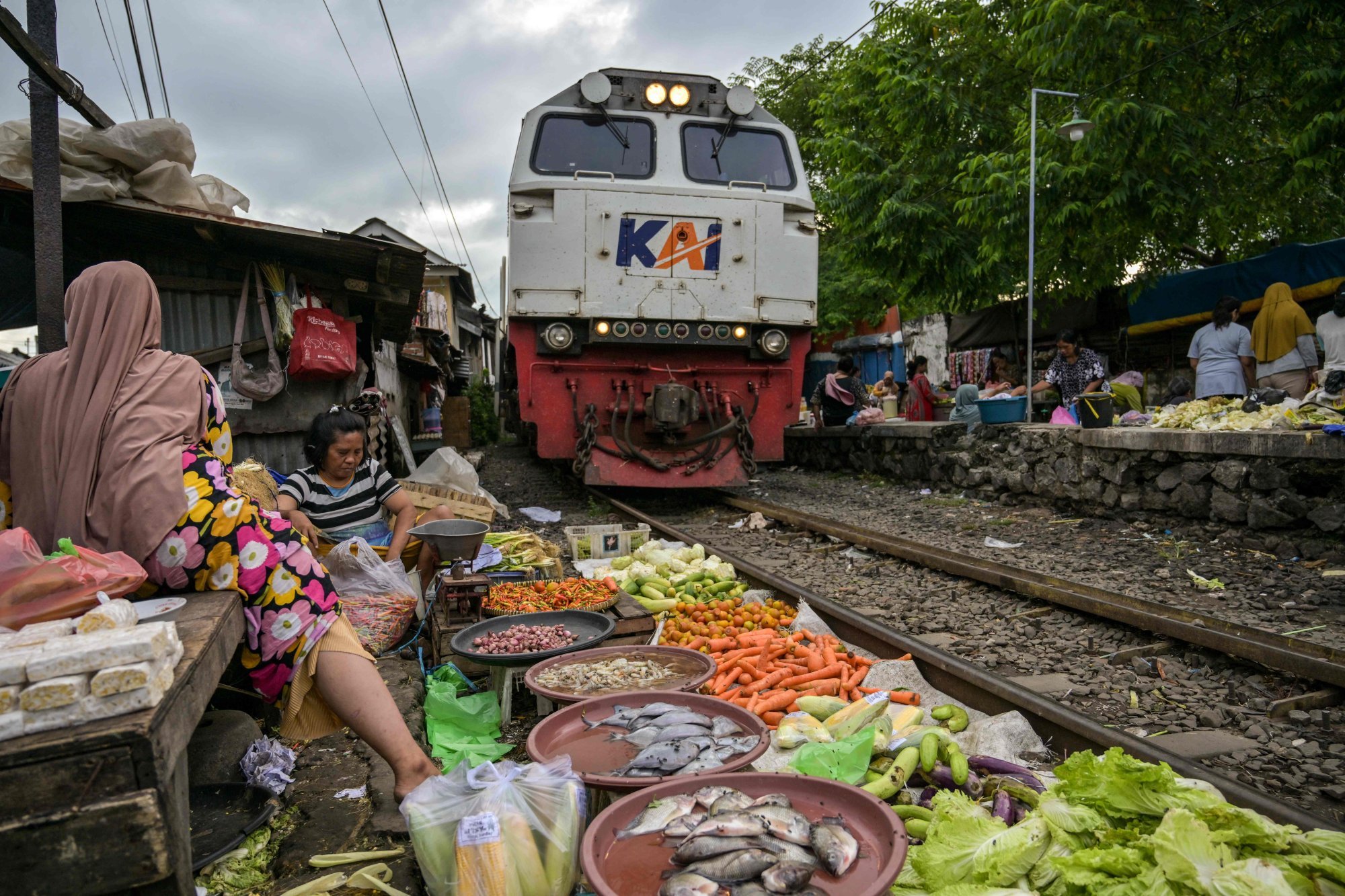
“With Prabowo prioritising flagship social programmes like free school meals and an anticipated rise in government spending in the coming years, it is unlikely the Ministry of Finance will want to support additional sovereign borrowing for this project.”
Should Indonesia proceed with Chinese investment, analysts caution that it may deepen concerns about the country’s growing reliance on Beijing for large-scale infrastructure.
“While Chinese investments have facilitated rapid development, they have also led to apprehensions about debt sustainability and national sovereignty,” said Zulfikar, further citing criticisms about Belt and Road Initiative projects’ lack of transparency and environmental impact.
“To mitigate these concerns, Indonesia should consider diversifying its investment partners and ensuring that agreements with foreign entities are balanced and safeguard national interests,” he said.